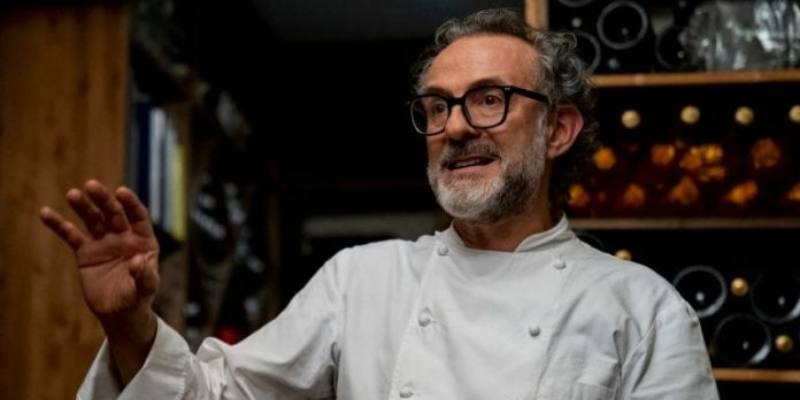


Italian chef and founder of non-profit Food for Soul, Massimo Bottura, has spoken about food waste and civic responsibility, and issued a call to act at a virtual World Economic Forum event on the theme of ‘Bold Actions for Food as a Force for Good’.
The chef-owner at three-Michelin-star Osteria Francescana shared his 35 years’ experience of being a part of the food economy, as he joined speakers from the worlds of academia, business, civil society, and government. They addressed the challenge of transforming food systems in response to the UN Food and Agriculture Organisation’s prediction that 50% more food will be needed by 2050 to feed the growing population. Bottura was the only guest chef on the panel, but as he pointed out: “If I am here as a chef, maybe the food summit is already changing?”
“Food is not just economy,” Bottura said, according to the article of Holly Cole in Fine Dining Lovers. “Food is culture, food is health – and most important, food is community. It plays a huge role in all of our lives, not just chefs, farmers, and movers and shakers in the food industry, but everyone.”
In a world in which 1.3 billion tonnes of food is thrown away each year, while 690 million people go hungry “not wasting is a demonstration of private responsibility,” he said.
“My restaurant has always aimed to provoke our guests to see these things from another point of view. We do not waste anything in our kitchens. If you can see the invisible potential behind stale bread, bruised fruit, vegetable peels and crust of parmigiana-Reggiano cheese then you’ll be able to expand your creativity and use these ingredients instead of throwing them away,” he explained.
He also described a counter-intuitive example of a failed food chain in Rio de Janeiro, where he also has a soup kitchen. There unused fruit and vegetables are sent off to be burned because it’s more expensive to distribute them to those in need than to burn the waste.
“Let’s start asking where our food comes from and how we can secure its future,” he said. “If every step of the chain has been carried out in an ethical structure, the final result will be better and more delicious.”
“Changing behaviour is one step to finding solutions to how we grow our food, how we shop for our food, how we use ingredients in our kitchen. People make change happen. Revolution starts in the field and out in the street.”
“People make change happen,” he said. “There needs to be synergy between the many voices in the food community. It’s not just about how to grow our food better but also how to waste less, how to get the best and the most out of the investment in the food system.”